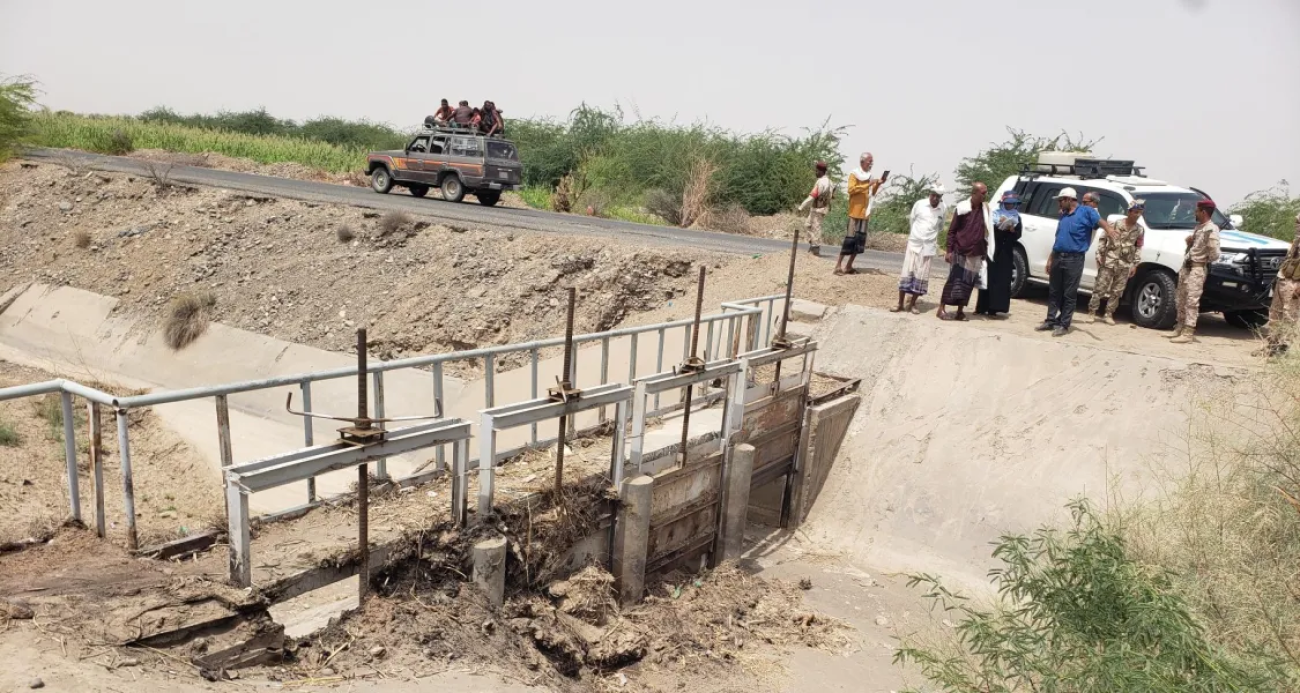UNV Yemen: Community volunteers support Yemen’s water lifeline

--
Yemen is running dry—and fast. With scarce rainfall and strained water systems, communities are facing shrinking harvests, exacerbating food insecurity. In response, the United Nations Development Programme (UNDP), with support from the German Federal Ministry for Economic Cooperation and Development and KfW Development Bank, launched the Integrated Water Resources Management to Enhance Resilience of Agriculture and Food Security project. United Nations Volunteers (UNV) in Yemen is supporting this project by recruiting Yemeni nationals as UN Community Volunteers.
In Al-Mawaset and Al-Selw districts in Taiz Governorate and Al-Mosymer and Tuban districts in Lahj Governorate, UNV is encouraging local community volunteers to take the lead, working part-time on this environmental initiative.
In March 2025, UNDP Yemen brought four part-time UN Community Volunteers on board—one for each district—to serve as a link between project teams, contractors, and local communities.
Their mission—keep communication flowing and ensure that everyone, from village councils and water associations to district authorities, is aligned and engaged. They help prepare sites, coordinate logistics, and smooth out any bumps along the way, whether it’s resolving social challenges, addressing community concerns, or ensuring construction waste is properly managed.
The project has multiple focuses: enhance water access, promote food security, and support local communities in the Tuban watershed. How? By fixing critical water infrastructure.
The volunteers work closely with district engineers, safeguard specialists, the project manager, and local authorities. From verifying land ownership and organizing public consultations to helping protect women and children near construction zones, volunteers ensure the project is safe, inclusive, and relevant for the community.
The four UN Community Volunteers, Abdulhabeb, Abdulwahab, Ali, and Sabri, shared, “Frequent travel and maintaining strong team communication due to poor network coverage were among the challenges we faced. In addition, managing multiple urgent tasks and writing reports in English was a common difficulty.”
Yet, this group of four refused to let these challenges hold them back. By collaborating with the broader team, they transformed obstacles into opportunities and found simple ways to overcome them. “To cope with network issues, we used SMS and WhatsApp to stay in touch and switched to smartphones so the IT team could set up work emails. We planned our travel carefully, combining site visits to reduce costs."
Despite being in the field, Abdulhabeb, Abdulwahab, Ali, and Sabri stayed connected through virtual meetings and joined a two-day UNDP workshop in Aden to learn how to coordinate better. "We regularly checked in with our supervisors to prioritize tasks and asked for support when needed. Thanks to help from the programme team and our local focal point, we also got assistance with preparing reports in English.”
Key project outcomes include boosting crop yields, improving water governance, promoting self-reliance, and engaging women in income-generating agriculture.
Water is life—and in Yemen, it’s the foundation for food security and resilience. Having community volunteers involved in this project is not just about restoring wells and canals—it’s a powerful reflection of how UNV continues to adapt and stay relevant, even in the face of conflict.
For more information, please contact:
Abdullah Al Duraibi
UNV Country Coordinator Yemen
Sana'a
Email: abdullah.al.duraibi@unv.org

